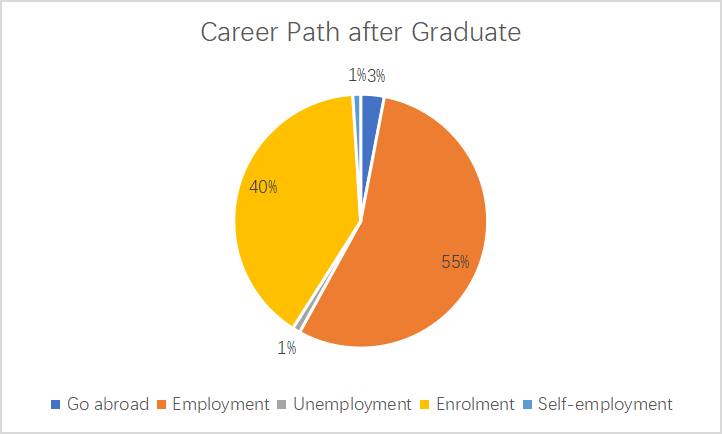The major in Communication Engineering is a professional field that is broad in scope and adaptable to various industries in communication and information. In 2021, it was selected as a national-level first-class undergraduate program. The program primarily aims to cultivate engineering and technical professionals in areas such as mobile communication, wireless networks, microwave and navigation, and intelligent information processing. Modern disciplines within the field of communication engineering include 5G wireless communication, optical communication, satellite communication, and quantum secure communication. With the widespread application of the Internet and mobile communication, communication engineering has evolved into a professional field with broad application prospects and societal demands.
Employment Directions:
The program places emphasis on cultivating students' research and practical skills during the undergraduate stage. Graduates possess strong adaptability in the job market and can engage in scientific research, technology development, teaching, and management in fields such as communication networks and mobile communication. They also have the capability to work in research and development in related areas such as electronic information and software-hardware development. Graduates may choose to further their education by pursuing master's and doctoral degrees in related disciplines like Information and Communication Engineering.
The program has a duration of four years, and graduates are awarded a Bachelor of Engineering degree.
Special Features:
The major focuses on wireless communication and networks, intelligent communication and information processing, navigation, and radar technology as its main professional directions. It has strong disciplinary advantages in areas such as dense wireless networks, millimeter-wave communication, biomimetic polarization navigation, and applications related to the BeiDou Navigation Satellite System.
The curriculum for this major includes three stages of practical training to cultivate students' innovation and entrepreneurial capabilities. Students have achieved significant success in competitions such as the Challenge Cup, Youth Innovation and Entrepreneurship Competition, and the Internet+ Contest.

 TOP
TOP